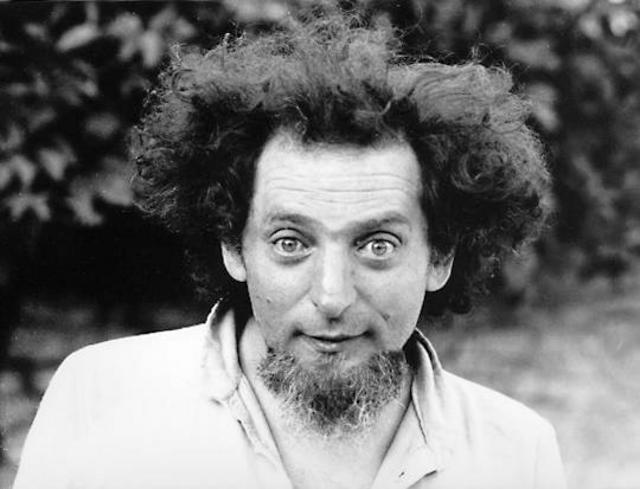Though I’ve lived in Seattle for almost three years — and The North in general for twice that — I’m still not used to the way the cold, dark, plodding months quickly, sometimes overnight, give way to sun and warmth. One day you’re trapped indoors, grimacing at the precipitation, and the next you’re slathered in sunscreen, whinging with no sense of self-awareness that it’s “too sunny.” It’s discombobulating.
 Which is a word I’d use to describe Amy Fusselman’s Idiophone, forthcoming from Coffee House Press in July 2018: discombobulating. Both to its credit and detraction (mostly credit), Idiophone discombobulates in various ways: its form is part-prose poem, part-essay; it is nominally nonfiction, but the book includes various fantastical elements, and of course there’s its not-classically-nonfiction form, which comprises sentences separated by thought and line breaks, venturing from manifesto to nonfiction and back again. There is also the variety of Idiophone’s concerns, including motherhood, alcoholism, what it means to create art, Manhattan, and magical transformation, and most discombobulatingly, there is Idiophone and The Nutcracker.
Which is a word I’d use to describe Amy Fusselman’s Idiophone, forthcoming from Coffee House Press in July 2018: discombobulating. Both to its credit and detraction (mostly credit), Idiophone discombobulates in various ways: its form is part-prose poem, part-essay; it is nominally nonfiction, but the book includes various fantastical elements, and of course there’s its not-classically-nonfiction form, which comprises sentences separated by thought and line breaks, venturing from manifesto to nonfiction and back again. There is also the variety of Idiophone’s concerns, including motherhood, alcoholism, what it means to create art, Manhattan, and magical transformation, and most discombobulatingly, there is Idiophone and The Nutcracker.
Idiophone spends much of its length interrogating The Nutcracker — and by extension, Tchaikovsky, and the experience of watching “one world … turn into another” — which is only discombobulating insofar as The Nutracker is not, usually, fodder for lyric essays. Fair or not, The Nutcracker has become firmly limned as a holiday delight, more ritual and family tradition than art. But, to return to my opening, what’s really discombobulating (I promise to stop) about The Nutcracker’s prominence in Idiophone is that one tends to think about The Nutcracker in winter, not on the cusp of summer during a record hot streak while reading a book that publishes in July.
This, I suspect, is very intentional on Fusselman and Coffee House’s part. By decontextualizing The Nutcracker, Fusselman strips the ballet of its sentimentality and is able to use The Nutcracker for what it is, sans nostalgia: a strange fantasy in which “everything becomes awake.” As Fusselman writes in a sort of thesis statement:
Why can’t more fiction be like The Nutcracker?
Why can’t more authors just abandon their lumbering
storylines halfway through and move on to something
more interesting, like dancing candy?
Why do you have to be stuck in a horrible world as it plods
to its logical end?
Why can’t there be mercy?
Why can’t you just leave one world and move into another?
Idiophone is a dance between Fusselman and her reader; Fusselman is always fully leading, sometimes at a stately pace, but most often at one that is allegro, even allegro vivace. It is, per this piece’s a title, a pas de deux.

And as mentioned above, the book touches on a sprawling array of themes, including motherhood (both Fusselman’s and her relation to her mother), alcoholism, what it means to create art, the history of The Nutcracker, and, true to her desire for writing that abandons “lumbering / storylines halfway through,” a strange, intermittently appearing, fantastical story about Fusselman’s mother traveling in a VW Beetle with two anthropomorphic mice. Like dancing with a confident-yet-unpredictable partner who isn’t letting you lead and who may be holding your hand a bit more tightly than necessary, Idiophone moves and turns frequently and all we, its readers, can do is follow.
Here’s a sample that shows how effective and bewildering Idiophone can be (note the form/line breaks). Fusselman’s leaps from Tchaikovsky’s sexuality, to terror, to a rabbit in a hat, to fear of magic, to an exciting moment in the mother-and-mice subplot, is something to behold.
Tchaikovsky was reportedly gay and was reportedly terri-
fied that this fact would be discovered.
There is some dispute over whether his death at age fifty-
three was from cholera or was self-inflicted because his
sexuality was about to come to light.
Imagine preferring death over having your whole self
come to light.
Imagine that much terror.
Imagine being a rabbit in a hat and being scared to death
of the magician’s gloved hands hovering over your ears,
equating the word abracadabra with the word
annihilation.
Imagine how small your world would be if you feared any
magic whatsoever:
your entire life deep down inside a black hat.
I wonder how the world would sound, living like that.
My mother and the mice are speeding down below, where
you can’t see, through the department store.
Suddenly Mouse One, who is driving, swerves to avoid an
oncoming scooter driven by a drunken cockroach.
Their car crashes into the leg of a dining table.
Everyone is hurt; my mother is thrown from the car.
The drunken cockroach’s scooter fishtails but miraculously
keeps going.
Look, it is starting to snow.
According to the reliable but occasionally fungible Merriam-Webster’s, an idiophone is an instrument “whose sound is generated by striking, rubbing, plucking, or blowing the material of the instrument itself.” The vibration of the instrument (e.g., in the case of a glockenspiel, after having been struck) is what produces its music. Faithful to her book’s title, Fusselman returns to the theme of the idiophone — primarily via the story of a “slit gong from Vanuatu” — multiple times throughout the book. She posits that when she was an alcoholic, before she quit drinking, when she accidentally walked through a pool of gasoline, perhaps her head was an idiophone that “needed to be directly struck.” Or maybe the world itself is an idiophone:
I love that horses run and make a sound like thunder
simultaneously.
I admire the sound of horses running out of their boxes.
I admire the beating of horses’ hooves.
Horses’ hooves beat the ground as if the ground were a
directly stuck idiophone.
Maybe they are an ongoing demonstration of this fact.
Maybe the world is actually an idiophone.
I’d suggest a third possibility: Idiophone is itself an idiophone. The book absolutely vibrates with the hand (and head) of the artist; following Fusselman’s thoughts across Idiophone is an intimate experience. And while some of her twists and turns can be initially perplexing, they’re always compelling, and frequently exhilarating. “If you are a writer at a keyboard, you have to be a magician. / You have to wave your arms around over your very particular choices.”
Lead image: Swope, Martha. “Act 1: Mouse Heads.” 1954. Photograph. New York Public Library Digital Collection; Jerome Robbins Dance Division Photograph Files, The Nutcracker (Balanchine after Ivanov).




